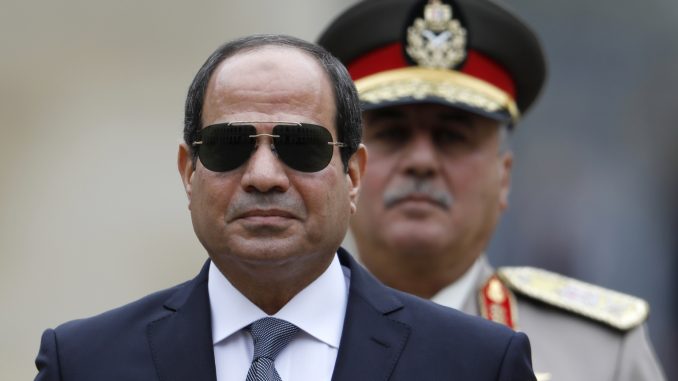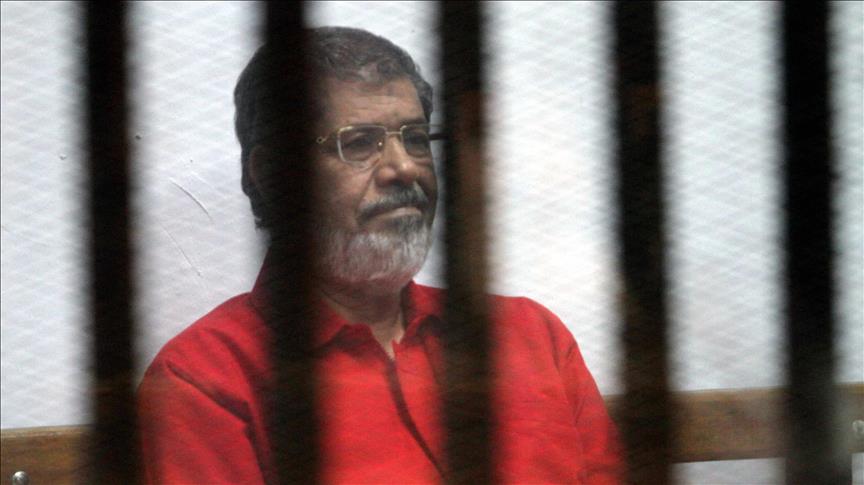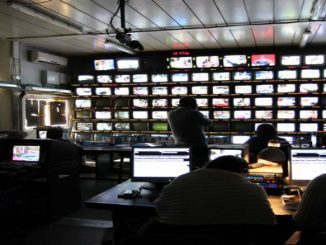
Egypt’s chief prosecutor delivered a withering broadside against the news media on Wednesday, blaming the “forces of evil” for negative coverage and instructing his staff to take legal action against outlets deemed to be undermining Egypt’s security.
The remarks by the prosecutor, Nabil Sadek, were the latest escalation of a draconian crackdown on civil liberties before a presidential election in March that has become fraught with tension even though Abdel Fattah el-Sisi faces no real opposition, according to the New York Times.
In comments that appeared aimed at the foreign news media, Sadek accused outlets of spreading false news “to disturb the public order and terrorize society.”
A day earlier, Egypt had called for a boycott of the BBC over a documentary that aired last week detailing torture and illegal abductions by Egyptian security forces.
Local news coverage has been dominated in recent days by a wave of government-driven outrage over the documentary. Although the documentary contained abuse accusations already widely documented by human rights groups, it was denounced as propaganda spread by the outlawed Muslim Brotherhood.
The State Information Service, which oversees the foreign media, said the BBC film was inaccurate.
Her mother said on Tuesday that the woman had been coerced into giving a false statement to the local station. A day later, the mother was reported to have been arrested.
The BBC said in a statement,”We stand by the integrity of our reporting teams.”
While al-Sisi has long treated Egyptian news outlets harshly, jailing dozens of reporters and blocking about 500 websites, he has generally spared foreign reporters the worst measures. That appears to have changed with the presidential election campaign.
A long list of rules announced by the national election commission in February seeks to dictate the questions journalists can ask voters, prohibits them from using photographs or headlines “not related to the topic” and forbids them from making “any observations about the voting process.”
“These rules made me laugh, and scared the hell out of me at the same time,” said Gamal Eid, a leading lawyer and human rights activist. “The rules are purposefully vague so they can decide to let their friends go, and punish their critics. It seems tailor-made for the foreign media.”
Although the presidential vote, scheduled for March 26-28, is widely seen as a charade — al-Sisi’s sole opponent is an obscure politician who until recently backed him — the government has given no quarter to potential rivals.
Four serious candidates who might have challenged al- Sisi were sidelined, jailed or threatened with prosecution before they could even get on the ballot, and on February 14 the authorities arrested Abdel Moneim Aboul Fotouh, an opposition leader who contested the 2012 election but is not running this time.
Abou al- Fotouh, 66, who publicly supported calls for an election boycott, now faces charges of conspiring to incite revolt and has been placed on a list of “terrorists” linked to the Muslim Brotherhood.
Last week, 14 international and Egyptian rights organizations urged al-Sisi’s American and European allies to publicly denounce the “farcical elections,”but that seems unlikely.
“Once hailed as a “fantastic guy” by President Trump, al- Sisi has avoided censure from allies who see him as a staunch ally in a region awash with Islamist violence and political turbulence. Several European countries have negotiated large arms and energy deals with Egypt in the past year,”according to New York Times.
It is worth to mention that Journalists have been regularly detained and prosecuted under al-Sisi — Reporters Without Borders ranked Egypt 161st out of 180 countries in its 2017 Press Freedom Index — but the pace of arrests has quickened in recent weeks.
At least 20 journalists were behind bars in Egypt as of December 1, 2017, according to Committee to Protect Journalists research, and more than half of those detained are charged with “spreading false news.”
The New York-based Committee to Protect Journalists said it was concerned about Moataz Wadnan, a reporter with HuffPost Arabi, who was detained on February 16 after he published an interview with a prominent Sisi critic. On February 4, the journalists Moustafa el-Asar and Hassan el-Banna were detained on their way to work.
Since May 2017, Egypt has blocked about 500 news websites, including HuffPost Arabi and the country’s few remaining independent news websites.



